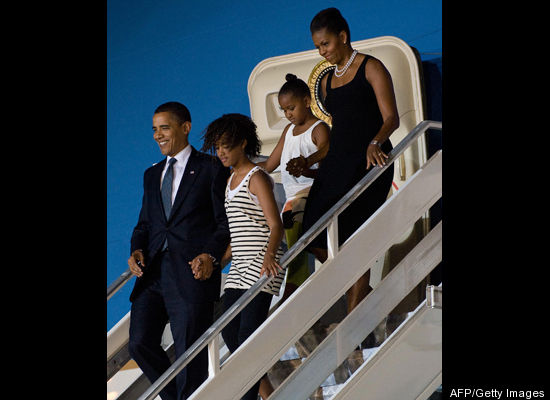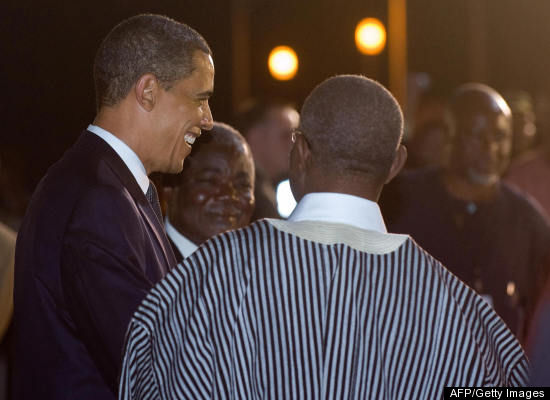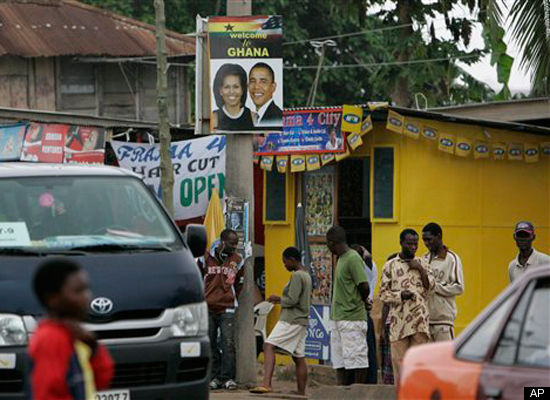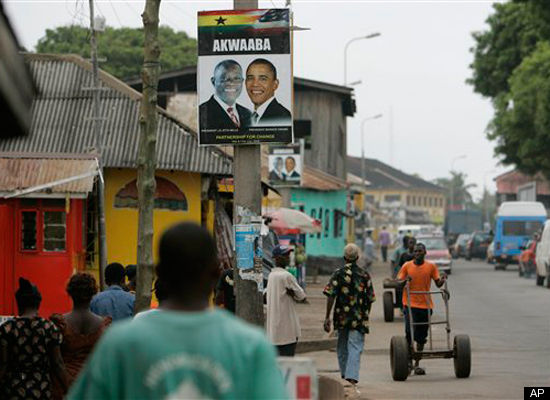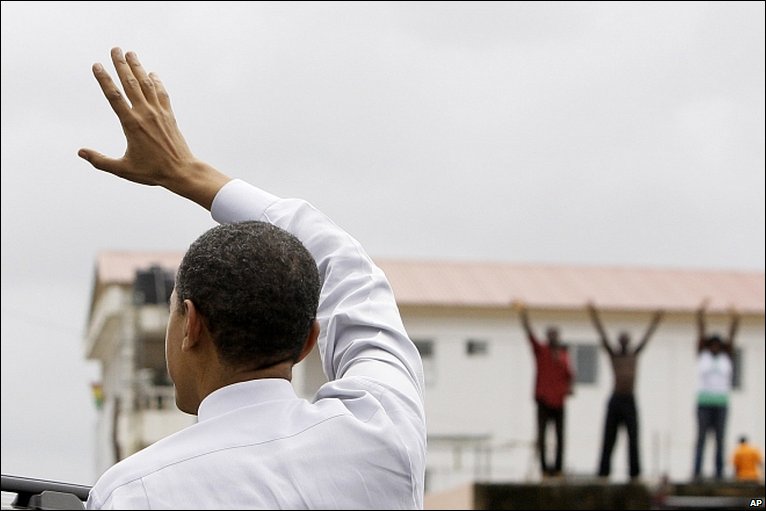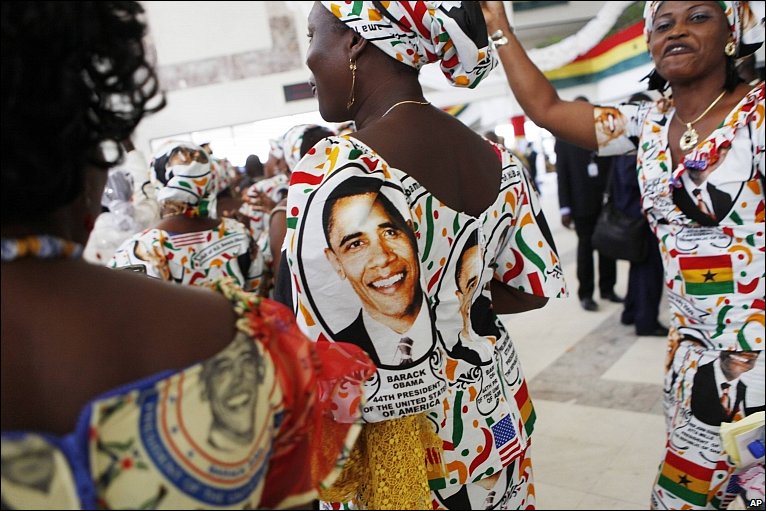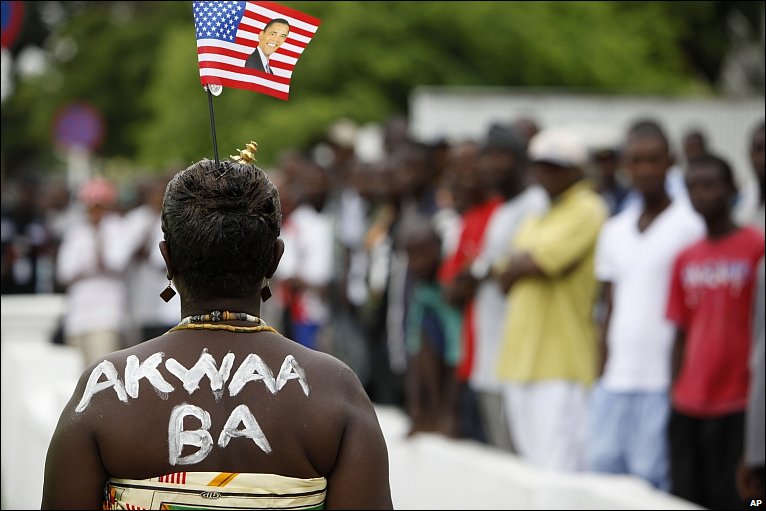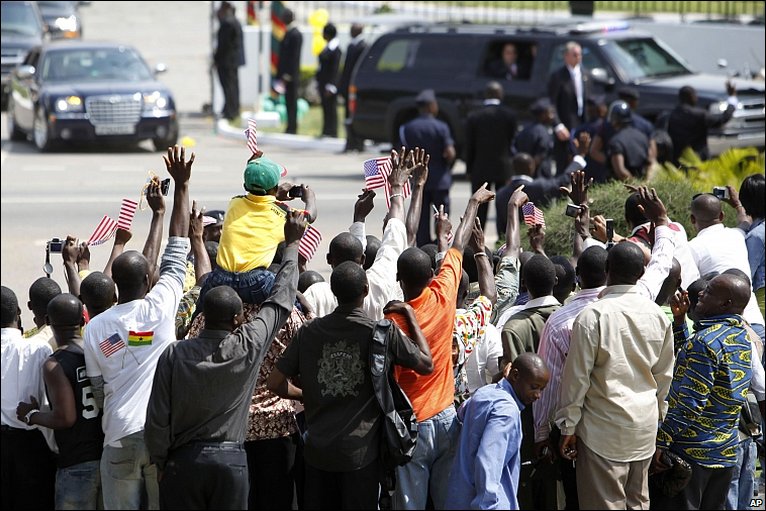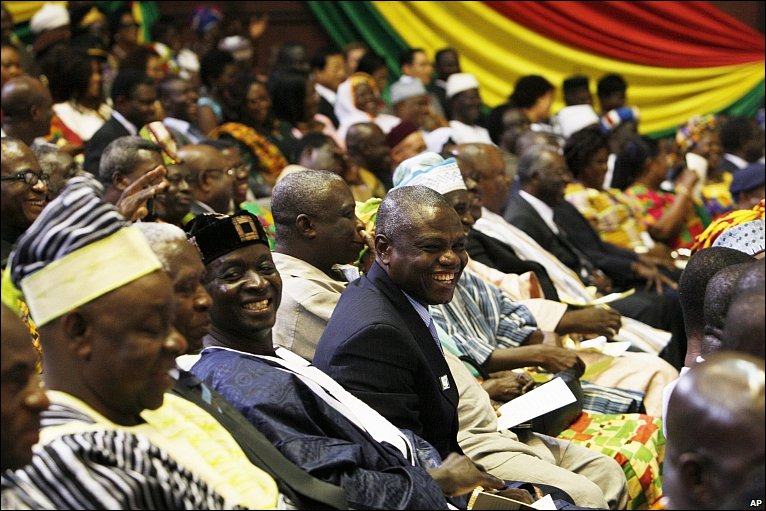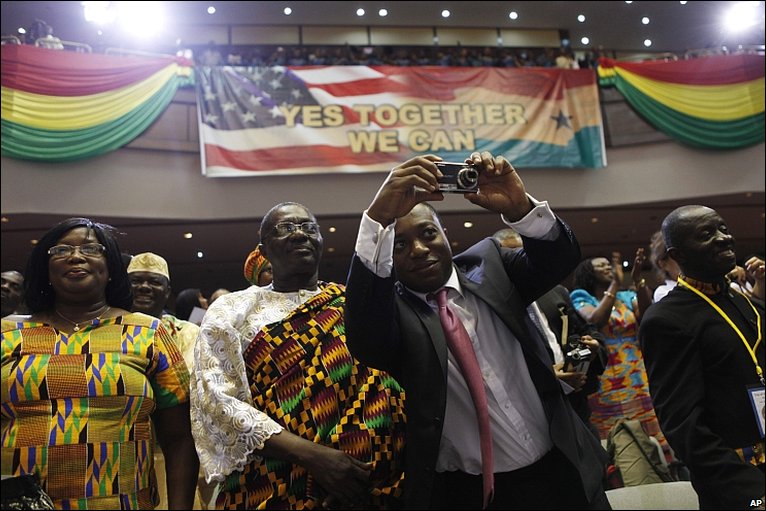MaxShimba
JF-Expert Member
- Apr 11, 2008
- 35,772
- 4,054
By Kwasi Kpodo and Jeff Mason Kwasi Kpodo And Jeff Mason
ACCRA (Reuters) President Barack Obama was given a hero's welcome in Ghana on Friday on his first visit to sub-Saharan Africa since taking office as the first black president of the United States.
It was a poignant moment for Africans as the leader of the world's most powerful country, the son of an African immigrant, and his wife Michelle, the descendant of Africans shipped to America as slaves, stepped onto the red carpet in Accra.
In Ghana, he is expected to deliver a message on the importance of good governance in a country that defies stereotypes of a continent blighted by conflict, coups and crisis.
"Part of the reason that we're traveling to Ghana is because you've got there a functioning democracy, a president who's serious about reducing corruption, and you've seen significant economic growth," Obama said before leaving Italy.
 Play
Play
Obama, his wife and two daughters were met at the airport by President John Atta Mills, elected in a peaceful, transparent vote last December that set an example for the continent.
Economic reforms in the cocoa and gold producing country, set to begin pumping oil next year, also helped bring unprecedented investment and growth before the impact of the global financial crisis.
Obama shook hands with local dignitaries, some in the colorful traditional kente cloth. To cheers, he moved briefly to the beat of the traditional drummers in the humid evening air of the coastal capital.
"He could hear the music before we opened the doors," said White House spokesman Robert Gibbs. "This is both a special and an important visit for him personally as president but also for our country to articulate a vision for Africa."
HOPE
Ghanaians packed the dark streets around the airport, hoping for a glimpse of the president, who was driven quickly to his hotel without making any public statement.
"It's a great moment for Ghana and Africa. We have to celebrate our own," said driver Emmanuel Tsawe, who covered his 43-seater bus with Obama posters.
"I believe he has good intentions for the continent and we must cooperate with him," he said.
But Africa has not been a top priority for an administration grappling with the global financial crisis.
Few expect a shift in policy and the main message will be on the importance of good governance and the wise use of aid, such as the G8 commitment made in Italy to spend $20 billion on improving food security in poor countries.
Obama, whose father is from Kenya, drew on his own background to stress the importance of transparency and strong institutions in bringing change.
"My father travelled to the United States a mere 50 years ago and yet now I have family members who live in villages -- they themselves are not going hungry, but live in villages where hunger is real," he said.
"If you talk to people on the ground in Africa, certainly in Kenya, they will say that part of the issue here is the institutions aren't working for ordinary people. And so governance is a vital concern that has to be addressed."
Obama was due to address parliament on Saturday before visiting Cape Coast Castle, a fort used in the transatlantic slave trade. He and his family will spend less than 24 hours in Ghana before returning to the United States.http://cosmos.bcst.yahoo.com/up/yne...lnaGhvcGVzZm9y?ch=4226713&cl=14398705&lang=en
ACCRA (Reuters) President Barack Obama was given a hero's welcome in Ghana on Friday on his first visit to sub-Saharan Africa since taking office as the first black president of the United States.
It was a poignant moment for Africans as the leader of the world's most powerful country, the son of an African immigrant, and his wife Michelle, the descendant of Africans shipped to America as slaves, stepped onto the red carpet in Accra.
In Ghana, he is expected to deliver a message on the importance of good governance in a country that defies stereotypes of a continent blighted by conflict, coups and crisis.
"Part of the reason that we're traveling to Ghana is because you've got there a functioning democracy, a president who's serious about reducing corruption, and you've seen significant economic growth," Obama said before leaving Italy.
 Play
Play Obama, his wife and two daughters were met at the airport by President John Atta Mills, elected in a peaceful, transparent vote last December that set an example for the continent.
Economic reforms in the cocoa and gold producing country, set to begin pumping oil next year, also helped bring unprecedented investment and growth before the impact of the global financial crisis.
Obama shook hands with local dignitaries, some in the colorful traditional kente cloth. To cheers, he moved briefly to the beat of the traditional drummers in the humid evening air of the coastal capital.
"He could hear the music before we opened the doors," said White House spokesman Robert Gibbs. "This is both a special and an important visit for him personally as president but also for our country to articulate a vision for Africa."
HOPE
Ghanaians packed the dark streets around the airport, hoping for a glimpse of the president, who was driven quickly to his hotel without making any public statement.
"It's a great moment for Ghana and Africa. We have to celebrate our own," said driver Emmanuel Tsawe, who covered his 43-seater bus with Obama posters.
"I believe he has good intentions for the continent and we must cooperate with him," he said.
But Africa has not been a top priority for an administration grappling with the global financial crisis.
Few expect a shift in policy and the main message will be on the importance of good governance and the wise use of aid, such as the G8 commitment made in Italy to spend $20 billion on improving food security in poor countries.
Obama, whose father is from Kenya, drew on his own background to stress the importance of transparency and strong institutions in bringing change.
"My father travelled to the United States a mere 50 years ago and yet now I have family members who live in villages -- they themselves are not going hungry, but live in villages where hunger is real," he said.
"If you talk to people on the ground in Africa, certainly in Kenya, they will say that part of the issue here is the institutions aren't working for ordinary people. And so governance is a vital concern that has to be addressed."
Obama was due to address parliament on Saturday before visiting Cape Coast Castle, a fort used in the transatlantic slave trade. He and his family will spend less than 24 hours in Ghana before returning to the United States.http://cosmos.bcst.yahoo.com/up/yne...lnaGhvcGVzZm9y?ch=4226713&cl=14398705&lang=en
